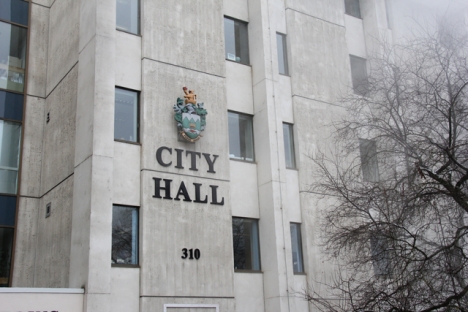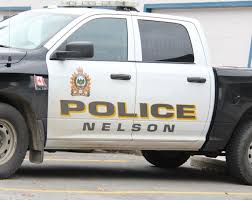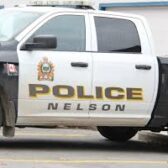City looks to secure secondary source of water and ponders rate increase
Securing a future secondary water source for Nelson could bump water rates even higher in the city in the coming years than the inflationary increase now being proposed for 2018, a city staff report predicted.
City council has planned inflationary rate increases of two per cent for water and 1.5 per cent for sewer in 2018 and onwards, but it is the establishment of a secondary source that will eventually be the real cost.
“It is important to note that since council finds that creating a secondary source for water is the priority for the water system they are willing to move forward on this project even if the city is unable to secure grant funding,” read a city staff report to council, “and that if that is to happen then it is likely future water rates will need to increase at a higher rate than what is currently projected.”
The city has begun the budgetary process necessary to deal with the service, with city council voting recently to pass the first three readings on bylaws to bump the rates around $18 per year for both services, nudging the amounts to just over $1,000 to $1,017.90 for the average household.
The updated Water and Sewer Master Plan again recognized that Five Mile Creek was the recommended main water source for the city, providing “abundant water in almost all situations, other than a 100-year drought situation.”
But the plan highly recommended pursuing the option of a secondary water source for the city and having ample water storage to assist with potential fire flow needs. City staff have worked on capital plans and applied for a grant on secondary source, but there is no guarantee the city will receive the money.
Even so, the master plan is proving to be an effective guidepost, with a previous priority recommendation in the original plan — replacement of all prone-to-leaking galvanized water lines — being completed.
“This significant water line infrastructure upgrade is one of the main reasons why the overall city water usage has dropped significantly, even in the face of increased development and population,” said chief financial officer for the city, Colin McClure, in his report to city council.
In addition, he noted the city has been successful in upgrading all of the primary pressure reduction valve (PRV) stations, some with plumbing for potential future power generation — another recommendation from the original plan.
In its budget deliberations over previous weeks city council felt that the proposed rate increases will “ensure that the water and sewer utilities are sustainable and will allow the city to keep on target with implementing the capital upgrades as outlined in the Water and Sewer Master Plans,” while maintaining a balance in the respective utility reserve accounts.
Based on the discussions with council and the review of the Sewer and Water Master
Plans, staff recommended the following changes to 2018 rates, discounts and potential future capital expenditures:
- A two per cent increase in water rates and a 1.5 per cent increase in sewer rates.
- Continue with the 75 per cent rate discount for conforming suites that are rented long term.
- Phase two of the utility upgrades for Hall Street received the necessary grant funding to proceed and should be completed in 2018.
- Ongoing infrastructure work to create the ability to use the lake as an emergency water source will continue.
- Continue the strategic ICI/residential metering installation and data collection project and analyze the data collected.
- Put the implementation of Phase two of the meter rate increase on hold until further meter data information has been collected. The meter rate is to be increased by the normal increases to the other water and sewer rates. Implementation of the 33 per cent meter rate increase is scheduled for 2020 and 2021.
Garbage and recycling rates frozen
With the city staff recommendation of no increase to garbage and recycling fees this year it will be 11 years since there was an increase in the collection fee and eight years since an increase to the garbage tag disposal fee.
According to a city staff report the overall revenues for the service will cover the projected cost increases for Environmental Health Services’ operating and capital costs over the next year.
The rates for a single-family dwelling are $40 annual charge per household for collection and $1.50 charge per garbage bag (tag) for disposal.
The city’s waste and recycling program are proving to be very viable, said McClure in his report to council.
“It is staff’s opinion that the City of Nelson, through picking up both garbage and recycling at the same time on a bi-weekly basis is one of, if not the most, efficient and cost effective environmental health service program in the province for a community of our size,” he said.
Some highlights from reviewing the operations and challenges for 2017 and 2018 are as follows:
- Wages are 25 per cent higher in the current year as compared to the prior year which is directly related to the public education and compliance program the city undertook in January of 2017 with respect to Recycle BC’s recycle program and the city’s Waste Bylaw requirements.
- This increase in wage costs has been partially offset with a seven per cent decrease in tipping fee charges (from a reduction in the amount of contaminated recycling product), which staff believes is a direct effect resulting from the city’s public education and compliance program.
- The city will continue with the education of residents as to what is permitted in the current blue bag recycling under the Recycle BC program.
- Staff will continue the education, compliance monitoring and enforcement of the updated Waste Bylaw.
- The contract with Recycle BC will end in December 2018 and there is some concern that the new contract will phase out the use of blue bags for recycling which could significantly increase the cost of recycling collection.
- There is potential in the future for a partnership with the RDCK to collect compostable product.


























